
9 minute read
The Magic Travellers
these are the places we travelled together
Rarotonga, where we fled along The Great Road of Toi on a Yamaha scooter
Advertisement
New Delhi, where in the Red Fort we sheltered from the heat under banyan trees
Zagreb, where you spoke about everything without moving your lips
Morocco, where the Tin Man squeaked through the souk to kiss the camel’s head
Singapore, where we caught a train to the empty gardens where the pangolins hide London, where I was silent this time, walking out like Pound’s apparitions these are the places we left ourselves these are the memories that drop like fruit from trees, only to rot in damp earth overnight.
Garden
I found you digging around the lettuce the spring onions in the planter I made from a pallet.
The afternoon sun lifted you up from the garden.
I pulled gumboots on and walk through damp grass.
The blind parsley quivers against our silent revolutions.
I held you close, you turned your lips to mine.
Dr Arthur Broomfield is a poet, short story writer and Beckett scholar from County Laois, Ireland. He is the author of nine books, including five poetry collections the latest being At Home in Ireland. New and selected poems. His works have been published in Irish, UK, USA , South American, Indian and European journals.
Billy Sherrill BMI Icon
The girl with the tear in her voice, knocked down by a day’s traipse, from one Nashville good luck with that grunt out of a Stetson hat, to the next, happens before your desk.
Her half-whispered sigh, no one is listening to me, gets her through a couple of songs. It’s your here and now. A drag from your cigar, your eyes meet, full-on. I’m listening, you say.
Martina McBride sings Till I can make it on my own. You’re backed by a humming duet. The older one, blonde, dyed hair, the one who knows the score, nudges you, whispers grace notes as she spot checks this and that celebrity: the one who stayed home, his guitar needs strings, the ones who turned up to honour you. The bells that ring.
You, tuned up to the beat of your bricks and mortar, Soft pedal till she fades out. Your index fingers strum in tempo, the left to the left, the right to the right. We get the optics as you clear the tears, from the ducts behind your specs, that sometimes bother you.
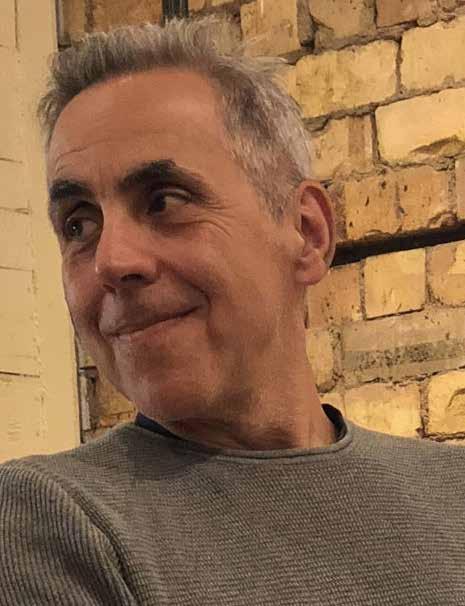
Art Nahill is a New Zealand physician, teacher, and writer who has published poetry on both sides of the equator, including four book-length collections. He has recently (and inexplicably) turned his hand to short fiction.
Tableau
You know how this scene ends. The young man and woman sit on a bed, knees to chest, in a small hotel room in an old section of the city. It could be any city, really, of rain and worn stone. The room is the best they can afford. Their bags lean into opposite corners, where the wallpaper curls upon itself in yellowing waves. The room overlooks a broad street clotted with traffic. He pulls the curtains closed as she reaches up and flicks on the bedside light, throwing the room into a tangle of sharp contours. It is early evening, but it feels much later.
Though you know how this, and all such stories, end, you may be intrigued enough by the setting, the uncertainty in their faces, to carry on. There is something familiar in the way they hold themselves apart. Their bodies have only recently learned to speak. You read on, waiting to hear if any fragment of your own story echoes within the walls of theirs.
The man, in his early twenties you guess, will depart in the morning by train to the airport. She will wander for a time amongst other cities before returning home. From the moment he arrived to visit, he could sense the new dimensions of their separateness, her body withholding something from his, her eyes darting away like small fish at passing shadows. It is always these smallest of things, he thinks.
Recognising they have reached this denouement, you urge him to leave at once, to pack his bag quickly and spend the night elsewhere, even in the busy train station, as though doing so might alter the trajectory of his life. It’s what you would do. It’s what you have done. But he cannot hear you. He is listening instead to the night settling down around him. continued overleaf...
I have not yet told you much about the young woman, though her changing heart is the fulcrum of this story. “Do not judge me,” she pleads. “Love is not a pair of shoes waiting for us to step wholly into or out of, at our choosing.” You notice the way she stares at the rustcoloured stain on the ceiling. You think she might cry, and so you do not judge her. You know we choose nothing in this life.
It grows late, and the moment you have feared somehow passes indistinctly, like tides far out at sea. The man and the woman eventually fall asleep, their knees lightly touching beneath the sheet. That’s it. You know the rest. For a while, there will be cards at Christmas, an occasional birthday message, then nothing. Even now, they are becoming landscapes littered with possibilities and misrememberings, and so, for years, they will keep, in a shoebox high on a shelf or beneath a pile of woolen jumpers, these few photographs, a few scribbled lines of bad, but earnest, poetry.
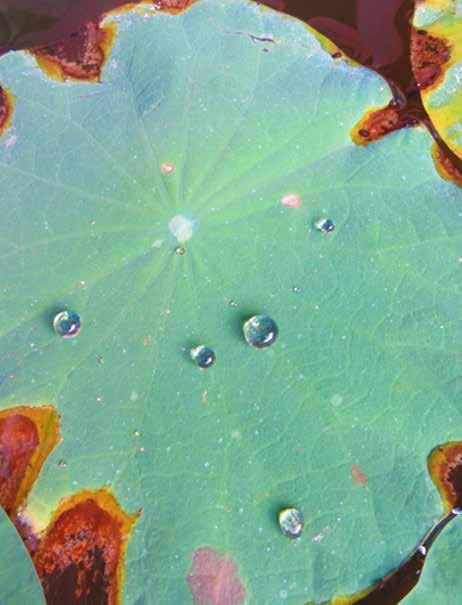
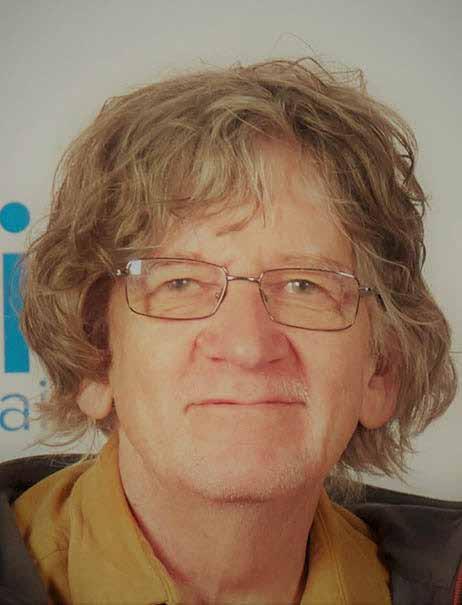
John Grey is an Australian poet, US resident, recently published in New World Writing, California Quarterly and Lost Pilots. Latest books, ”Between Two Fires”, “Covert” and “Memory Outside The Head” are available through Amazon. Work upcoming in Isotrope Literary Journal, Seventh Quarry, La Presa and Doubly Mad.
Dear Joanna
I know you can’t hurt me so tonight, for my sake, emerge from the shadows, let me delight in your face once again, hear your voice, soft and compelling.
No more of these lipless whispers. No more fluttering fractured gleams of light or curtain rustle or creak of floorboard. And please, dispense with that insistent imperceptible spirit.. the inexplicable sense that I am not alone when all else says otherwise.
I know you can’t hurt me but please, just this once, materialize, hurt me.
Romantic life, night one
It was the most lackluster kiss that a boy on a doorstep ever delivered. But as she lay in bed, she figured she loved the guy anyhow. Their lips met, didn’t they?
And his hands wrapped around her waist, if only briefly. But she was only fifteen. She relieved the scenes leading up to it. They were as awkward as the final moment. And she remembered the conversation.
“Dumb, stupid” she muttered in half-sleep. If they’d been lines in a script, the film would have never been made.
For her though, it was something to work on. Like the touch of his thigh against hers in the movie house.
Or the brief interchange of fingers. Or the sight of his tongue as he licked ketchup from his chin in the burger joint
Or the ride home in the cab.
And the talk, though surely the smallest on record, was, at least, between the two of them. And then the kiss.. .her kiss... no other mouth nudged her away and planted itself in the general area of his. That’s where it began.
And where it ended for that particular boy.
Though that night, she loved him. After that, she was happy just to love.
Snow falls where it will
Flakes adorn headstones, soft snow on death, clouds blocking light, canyons of wind blowing gruff man winter through haughty streets but sincere, self-effacing, on crosses and angels.
It’s not down to us, citified, locked in our houses, cursing weather, inconsolable, in the jaws of this bleak white monster that devours us all, but is gentle and accessible to stone gray fences, lowing willows, yesterday’s roses.
A man in coat and wool cap bends over the grave of his wife, further softened by dampness, remembers the good in such flurries back in the 50’s and 60’s, now insular but not quite alone, a lyrical ice-tear in his eye, a chill beating his breast proud.
In his sorrow, in his memory, the old bitter brute looks after him well. In the houses built since the 80’s, the blind stare out, the featureless rise up.
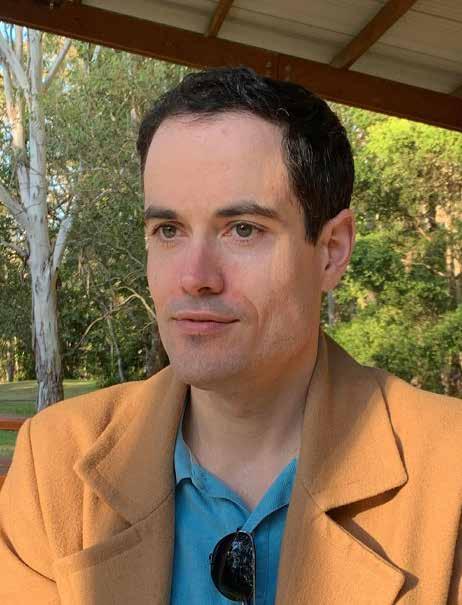
Michael J. Leach (@m_jleach) is an Australian poet, critic and academic. Michael’s poems have appeared in journals such as Cordite Poetry Review, exhibitions such as the Antarctic Poetry Exhibition, anthologies such as Poetry d’Amour 2022: Love Poems (WA Poets Incorporated, 2022), and his two poetry books: Chronicity (Melbourne Poets Union, 2020) and Natural Philosophies (Recent Work Press, 2022). Michael has won the UniSA Mental Health and Wellbeing Poetry Competition (2015), received a commendation in the Hippocrates Prize for Poetry and Medicine (2021), jointly won the poetry category of the Minds Shine Bright Confidence Writing Competition (2022) and had a poem shortlisted for the Woollahra Digital Literary Award (2023). During 2024, Michael will publish two new poetry books: a collection of haiku and senryu (In Case of Emergency Press) followed by a collection of poems exploring sounds and emotions (Ginninderra Press). He lives on unceded Dja Dja Wurrung Country and acknowledges the traditional custodians of the land.
Brimful for Irina
New Year’s Eve 2023 a mugful of mint tea / a mouthful of Baci* / a tableful of delicate dishes / a houseful of fragrant flowers / a lungful of petrichor / a gardenful of local birds / a lapful of felines / a rackful of clean dishes / a basketful of clean clothes / a handful of fresh berries / a palmful of four-leaf clovers / a pocketful of pocketbooks / a pageful of love poetry / a screenful of romance / a roomful of bubbly music / a bottleful of champagne / a bowlful of salted cashews / a plateful of barbecued meats / a scoopful of gelato / a lakeful of pleasure boats / a boxful of sparklers / a skyful of fireworks / a headful of happiness / a heartful of fondness
* ‘Baci’ refers to both the Baci brand of chocolate truffles and the Italian word for ‘kisses’.
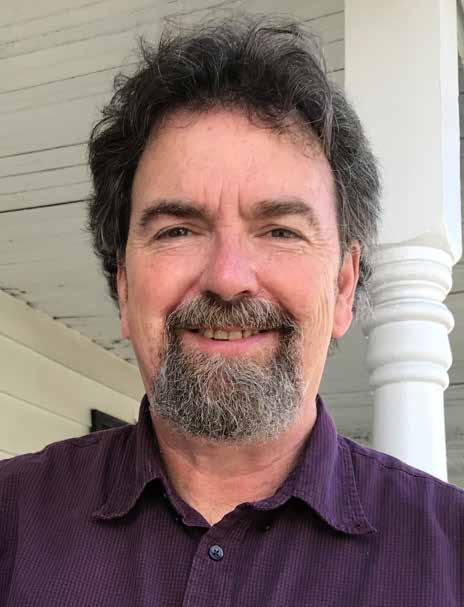
Tim Dwyer’s poems appear regularly in Irish and UK publications, recently in Acumen, Cyphers, Under The Radar and Masculinity Anthology (Broken Sleep). He is a previous contributor to Live Encounters. His chapbook is Smithy Of Our Longings (Lapwing). Originally from Brooklyn, NY, he lives by the shore in Bangor, Northern Ireland.
Enough for Marianne
No award-winning film, or life-changing book, exquisite meal— enough, the two of us home on the crowded train, late Sunday afternoon.
Over the lough a billowy cloud turns from peach to rose to purple as the sun returns to earth
Last Place In This World
As time shrinks, I send a prayer to my parents many years dead. Maybe quaint and cowardly, but I’m at my best when I imagine the beyond.
They don’t send back a sure-fire sign, such as levitating this book, The Afterlife, a foot above the bed, or a couple of seconds to hear their voices again— but today, it’s enough to see their faces in my mind, the last place in this world I am greeted as my boy.
The Afterlife, poetry collection by Larry Levis (1946-1996), University of Iowa Press, 1977.
Wake Time
The sky lightens, you appear with coffee in my favourite cup, open the curtains and begin the story about the girl from long ago on a quest to save the boy from evil stealing his soul.
The chapter ends, I picture the next stage of the journey, gaze across the lough, pulse of the old lighthouse winking from the other shore.
Tomorrow is the future when the story resumes.
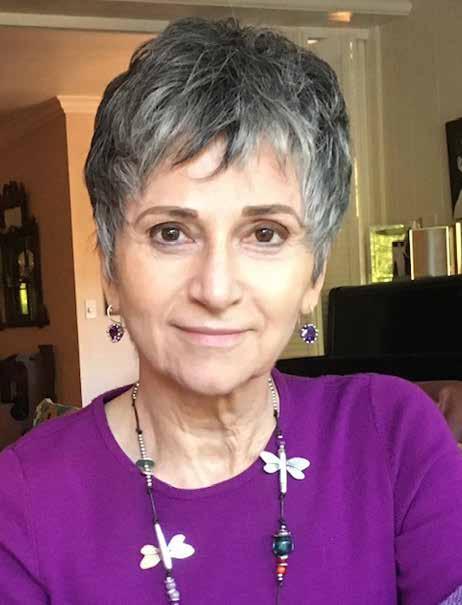
Alicia Viguer-Espert, born and raised in the Mediterranean city of Valencia, Spain, lives in Los Angeles. A three times Pushcart nominee, she has been published in Lummox Anthologies, Altadena Poetry Review, ZZyZx, Panoply, Rhyvers, River Paw Press, Amethyst Review, Odyseey.pm, and Live Encounters among others. Her chapbooks To Hold a Hummingbird, Out of the Blue Womb of the Sea and 4 in 1, focus on language, identity, home, nature, and soul. In addition to national and international publications, she is included in “Top 39 L.A. Poets of 2017,” “Ten Poets to Watch in 2018,” and “Bards of Southern California: Top 30 poets,” by Spectrum.
Love Matter
I believe in science one steps out of the blue sphere of narrow perspectives, borders disappear into dust motes of cosmic choreography.
It’s impossible not to acknowledge how small and equal we are what nurtures us must feed the planet’s rhythmic breath; selfishness is a genetic error.
Science reveals Love’s creativity, its oxygen causes inner revolutions, connections filling every crack of life behaving just like Dark Matter that 95% of mass we cannot see.
Subtly it affects us, shapes Galaxies, holds them in place by a gravitational field engineered by what we cannot understand, Love Matter.
To Be with You
After the Rain, the moon leaned over pale clouds, lit the forest in such way that one could distinguish a black hand holding a white one at the end of my sweater. Dripping maple trees appeared vanquished, wounded. The edges of moss swung pushed by wind becoming undone braids.
Bundled up we approached the house, listened to drums of rain still pounding the gutters. It took a while for stillness to enter the hearth, slowly the rising yeast of music invaded the room, the stone fireplace hummed red,
I dried my hair and changed my shoes. The space between us, what has been loose by water tighten by heat.
Your hands fingered my earlobes, a butterfly searching for nectar kissed the hollow of my neck, my own breath reminded me of a sinking ship, a place to go inside cosmic depths of water.
I didn’t wish to drown in the slow suffocation of the ocean, painful they say, but I envisioned, as monks dream of paradise, paroxysm, pathological desire to dive into waves of ecstasy, meeting you at the Gates of La Petite Mort.








